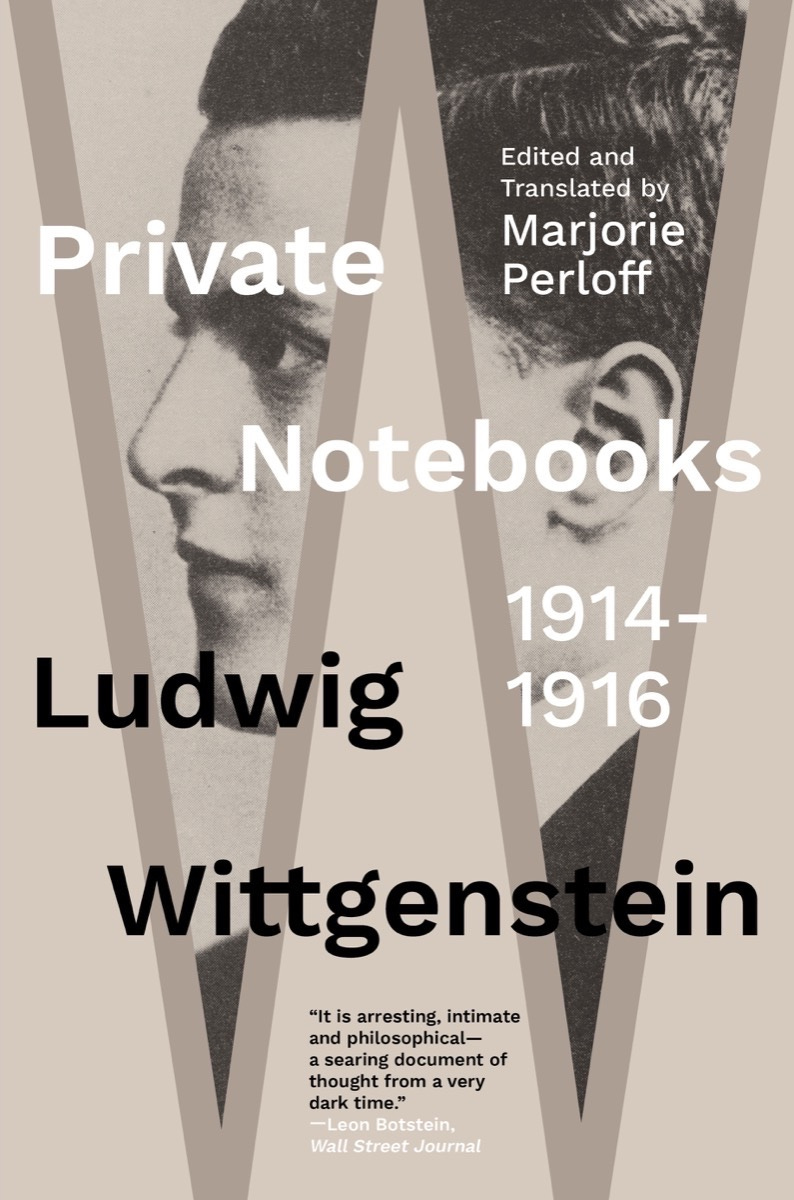Private Notebooks 1914-1916 by Ludwig Wittgenstein. Translated and Edited by Marjorie Perloff (Liveright)
Friday, May 6, 2022
I love reading other writers’ notebooks or notes as a fellow writer. I find it fascinating how one thinks and the process of writing down their thoughts in a blank notebook. For years I have kept a writer’s journal that someday will be published, and soon after, everyone has passed away. Before that, I would find it highly embarrassing for anyone to read them while I was alive. The last moments will be focused on knowing that the living world will be reading my multi-volume journal for years ahead. It is like I never died. I will live forever. I wonder if Ludwig Wittgenstein ever thought about living forever in such a manner?
Private Notebooks 1914-1916 is a remarkable piece of literature written when Wittgenstein was in the military during World War 1. A man who didn’t waste words describes his daily struggle to work on his masterpiece Tractatus Logico-Philosophicus. A work that I struggle to understand, but I can feel it. Using language to understand the world, yet, is that even possible? For the past ten years, Wittgenstein has profoundly affected my thoughts and writing. If nothing else, his quote, the limits of my language means the limits of my world,” is a door-opening expansion for my thoughts on the usage of language and the ability to understand life as it is practiced and, in my case, performed. I look at my life as a performer, and the writing I post/publish is very much a performance. Wittgenstein's beauty is not in a romantic sense but something that is presented in every word or thought. To define something like that can take a lifetime, and maybe that is one of the reasons why I write.
Marjorie Perloff did a remarkable job in translating and editing these three notebooks. Originally Wittgenstein wrote these books in code; I presume he didn’t want uninvited eyes looking over the manuscript. Or at the time didn’t want to expose this thinking process until he was ready to articulate his thoughts. Still, it’s a journal with eros because we know he masturbated, but we get none of the erotic images, even in his notebook writing. Wittgenstein was facing death, boredom, and sexual release but never exposed his thoughts on the matter. He wasn’t happy at war because he didn’t get along with the other soldiers, but oddly enough, he admired the officers.
The book is both in German and English, and it’s a quick and, of course, enjoyable read. Wittgenstein is endlessly fascinating, and I’m happy to be a fan, but one that thinks of Wittgenstein’s words.
Private Notebooks 1914-1916 by Ludwig Wittgenstein
Edited and Translated by Marjorie Perloff
ISBN: 978-1-324-09080-9



